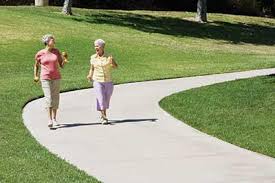The Basics
Although physical challenges or illness often make it difficult for people to maintain a positive attitude and body as the decades go by, there are many positive actions that can be taken which will play key parts in successful aging.
Prerequisites to healthy living include proper eating with a balanced diet, whether home-cooked, meals-on-wheels, or other sources. The living environment should be assessed for safety, and any improvements done that will help prevent accidents. We have explored many of these aspects in previous articles.
Perhaps the most basic decision that is essential is for the individual to stay as active as possible if they choose to stay healthier. This would include walking regularly, exercising to the extent they are able to, doing stairs if they can, etc.
Healthy Mind, Healthy Body
Equally as important as physical activity is for the individual to keep their mind as active as they can. Some examples are writing, engaging in group classes, continuous learning, reading a variety of books, attending webinars, etc. Activities that are computer-based will also enhance mental energy. Similarly, participating in new activities such as yoga, meditation, or exploring ideas out of their previous comfort zone can enhance their mental energy.
Studies have found strong correlations between successful aging and particular types of attitudes as well as activities. For example, attitudes such as optimism, gratitude, resilience and a generally positive feeling about aging will help to maintain a greater degree of health for much longer.
Dr. Jeste runs an institute for research on aging in San Diego and their studies have identified various “psychosocial strategies for successful cognitive aging”. These include a “psychosocially simulating environment, learning new skills, and specific cognitive enhancing strategies”. They note that “It is never too early nor too late to start”.
Some of the conclusions reached in their studies are that successful cognitive and emotional aging is NOT primarily dependent on physical health or genes. They noted that attitudes, behavior and environment do have a major impact on aging.
People Need People
Social engagement has also been found to be critical in successful aging. Participating in group creative projects, learning new skill sets, and sharing the attention of various pets have all resulted in greater alertness and improved energy in many settings. Programs in some senior care facilities have matched teenagers with seniors for certain periods during the day, and the benefits of the interaction have been notable to both groups.
